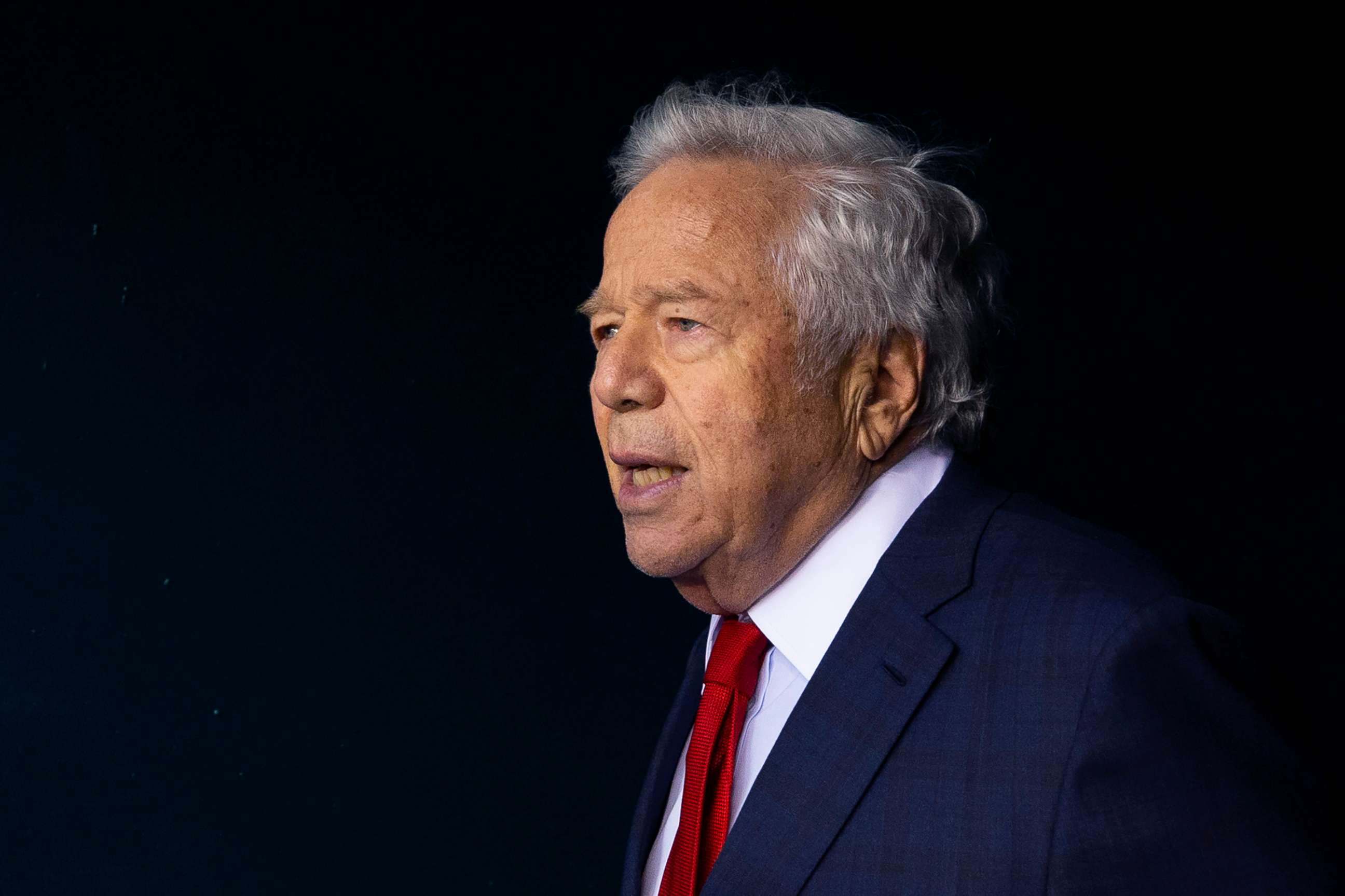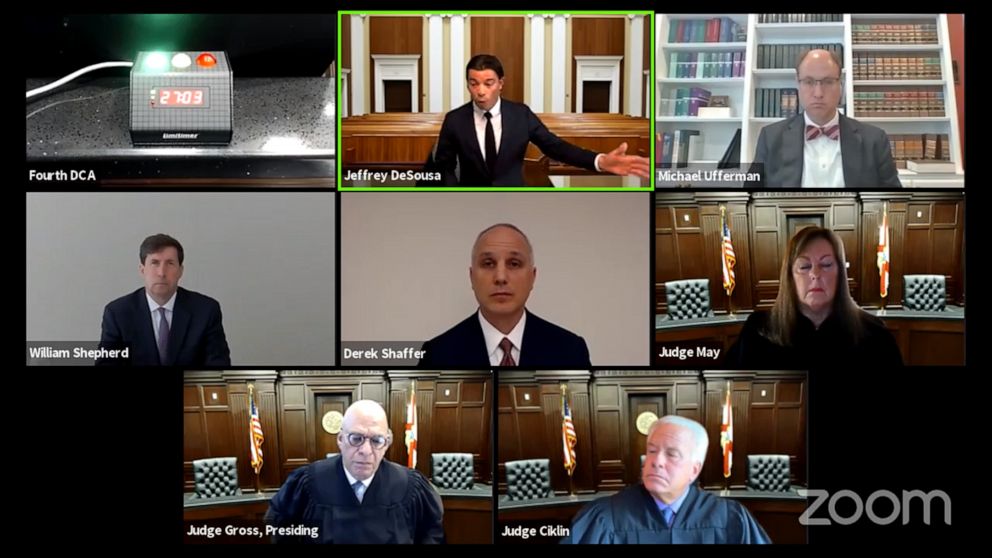Appeals judges hear arguments over video evidence in Patriots owner Robert Kraft's prostitution case
Prosecutors contend the police search warrant was valid.
Prosecutors appealed to Florida appellate judges via a video conference Tuesday morning to allow key evidence in the solicitation case against New England Patriots owner Robert Kraft.
Kraft, 79, was hit with misdemeanor charges last year after investigators say he was recorded twice paying for sex acts with workers at the Orchids of Asia spa in Jupiter, Florida. Two dozen other clients were also charged as part of an investigation into the spa over alleged sex trafficking.
In May 2019, Palm Beach County Judge Leonard Hanser ruled that prosecutors could not use undercover police videos taken from inside the spa as evidence during the trial. He said police did not do enough to protect the privacy of all the spa's customers.
Prosecutors argued the video evidence is crucial in the case against Kraft and the other defendants who haven't taken plea deals.
Jeffrey DeSousa, the deputy solicitor general, contended Hanser erred in his decision and that the warrant was issued legitimately after detectives spent days collecting evidence that the spa was a front for an illegal sex trafficking and prosecution ring.
DeSousa said investigators uncovered evidence that the spa was a brothel, including from financial records and statements from cooperating clients, and that investigators needed to conduct the undercover surveillance to prove their case.

"Knowing what the police knew at the time, their conduct was lawful," DeSousa told the three-judge panel.
DeSousa also noted that prosecutors are willing to not disclose any part of the video surveillance that doesn't show any crimes.
Attorneys representing Kraft, who said he is "truly sorry" for being caught up in the spa's investigation, and two other defendants argued that the use of the footage would hurt the civil liberties of Florida residents.
Derek Shaffer, who represents Kraft, said the entire case was under the "specter of a police state" and investigators didn't make an effort to protect the privacy of the patrons who used the spa.
"We think it is obvious that Mr. Kraft has standing," he argued. "He should not have expected the state to be spying on him."

The appellate judges questioned DeSousa and the defense attorneys on some of the technical aspects of the warrant. The defense has argued that the search warrant didn't give officers clear directions on discretion when conducting video surveillance at the spa, specifically when it came to minimizing impact on clients who didn't commit crimes.
Judge Robert Gross noted that the defense raised the issue that the officer didn't fully read the details of the warrant.
DeSousa argued that the officer fully understood its legal applications and the parameters for the surveillance.
The prosecutor also addressed defense claims that the search warrant for surveillance mislead the court on what charges were being pursued, including human trafficking, which was not filed in this case.
"It is really difficult to argue he misrepresented the case," DeSousa said.
Shaffer argued that the officers didn't do enough to minimize the scope of the surveillance for the legal patrons.
"These cameras that were put in private massage rooms … they recorded everything without interruption for five days straight," he said.
The judges are expected to make their decision on the video evidence in the coming weeks.




